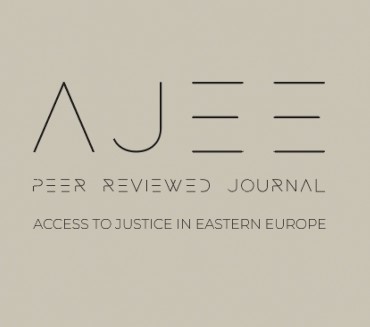Summary: 1. Introduction. – 2. Taking of Evidence. – 3. Evidence in Criminal Proceedings in the Slovak Republic. – 4. Admissibility and Legality of Evidence. – 5. Concluding Remarks.
Background: Turbulent technological progress in the 21st century has caused the emergence of a number of new possibilities, especially technical in nature, and allowed for new means of proof as evidence. Legal regulation of criminal law in the Slovak Republic is responding to this trend, and progressive approaches to evidence which reflect the current level of development of science and technology are gradually being introduced. This article focuses on current challenges in the field of legislation regulating the issue of evidence in criminal proceedings.
Methods: Legal comparison, content analysis of websites, functional analysis of legal acts, and analysis of the decisions courts were used to process the research data.
Results and Conclusions: Current legislation on executing evidence in criminal proceedings in the Slovak Republic requires modification. There is especially the need to reflect on the current state of economic and dynamic technological progress in the 21st century. The recent list of evidence means in S. 119(3) of the Code of Criminal Procedure is not complete but does not automatically reject the use of other means of evidence. Discussions on how to proceed are currently taking place within the professional public. We believe that in the near future criminal law must respond adequately and enable the use of evidence obtained by new technologies such as satellites, GPS, GLONASS, dashcams, vehicle software, communication technologies, location tracking, etc. Of course, the final word will always be given to the court, which will assess whether such evidentiary information is admissible and effective, or what "weight" it will have in deciding on a particular criminal case.

